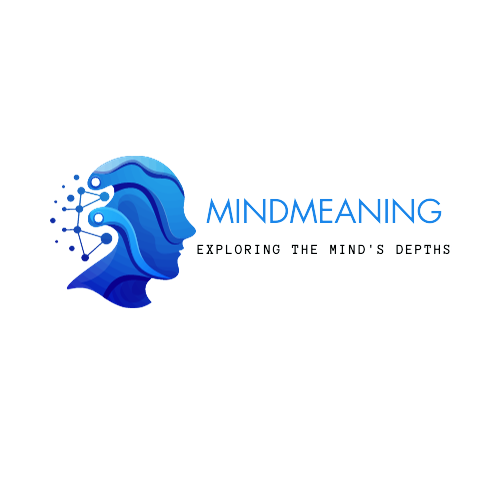Anxiety Attacks: How to Identify, Manage and Overcome Them
Living with anxiety can be an overwhelming and debilitating experience. Anxiety attacks, also known as panic attacks, can strike suddenly and leave individuals feeling frightened, helpless, and out of control. Understanding how to identify, manage, and ultimately overcome these attacks is crucial for reclaiming a sense of peace and well-being. In this comprehensive guide, we will explore the nature of anxiety attacks, delve into their causes and symptoms, and provide practical strategies to effectively manage and overcome them. Let’s embark on this journey of healing together.
- 1. Understanding Anxiety Attacks
- 2. Identifying the Causes of Anxiety Attacks
- 3. Recognizing the Symptoms
- 4. Seeking Professional Help
- 5. Self-Help Strategies for Managing Anxiety Attacks
- 6. Building a Strong Support System
- 7. Challenging Negative Thoughts
- 8. Practicing Self-Care
- 9. The Power of Relaxation Techniques
- 10. Overcoming Anxiety Attacks: A Journey of Healing
- Conclusion

1. Understanding Anxiety Attacks
Anxiety attacks are intense episodes of fear and panic that can occur unexpectedly. They often reach their peak within minutes, leaving individuals feeling physically and emotionally drained. The symptoms may include a rapid heartbeat, shortness of breath, chest pain, dizziness, trembling, and a sense of impending doom. It’s important to remember that anxiety attacks are not life-threatening, but they can significantly impact one’s quality of life if left unaddressed.
2. Identifying the Causes of Anxiety Attacks
Anxiety attacks can stem from a variety of underlying factors, and it’s crucial to identify these triggers in order to effectively manage and overcome them. Common causes include chronic stress, traumatic events, phobias, genetic predisposition, imbalances in brain chemistry, and certain medical conditions. By recognizing the root causes, individuals can gain insights into their anxiety and work towards finding effective solutions.
3. Recognizing the Symptoms
Recognizing the symptoms of an anxiety attack is a fundamental step in learning to manage them. Physical symptoms may include a pounding heart, sweating, trembling, hot flashes, and stomach discomfort. On an emotional level, individuals may experience a profound sense of fear, a fear of losing control, and a detachment from reality. Being aware of these symptoms enables individuals to take necessary action and implement coping mechanisms to regain control.
4. Seeking Professional Help
When anxiety attacks become persistent or severely impact daily life, seeking professional help is crucial. A mental health professional, such as a psychologist or psychiatrist, can provide a comprehensive evaluation and develop an individualized treatment plan. Therapy techniques such as cognitive-behavioral therapy (CBT), exposure therapy, and relaxation techniques may be recommended to help individuals manage and overcome anxiety attacks.
5. Self-Help Strategies for Managing Anxiety Attacks
While professional help is essential, there are also self-help strategies that individuals can incorporate into their daily lives to manage anxiety attacks. These strategies include:
- Deep Breathing Exercises: Practice slow, deep breaths to help calm the body and mind during an anxiety attack.
- Mindfulness and Meditation: Engage in mindfulness practices and meditation to cultivate a sense of present-moment awareness and reduce anxiety symptoms.
- Regular Exercise: Physical activity has been shown to reduce anxiety and improve overall mental well-being. Aim for at least 30 minutes of moderate exercise daily.
- Healthy Lifestyle Habits: Prioritize healthy habits such as getting enough sleep, maintaining a balanced diet, and reducing the consumption of caffeine and alcohol.
6. Building a Strong Support System
Building a strong support system is essential for those dealing with anxiety attacks. Reach out to friends, family, or support groups who can offer understanding, encouragement, and a listening ear. Sometimes, simply talking about your fears and anxieties can provide immense relief and perspective.
7. Challenging Negative Thoughts
Anxiety attacks often arise from negative thoughts and distorted thinking patterns. Learning to identify and challenge these thoughts can significantly reduce anxiety levels. Replace negative thoughts with positive affirmations and realistic perspectives to regain control over anxious thinking.
8. Practicing Self-Care
Self-care is vital for managing anxiety attacks. Engage in activities that bring joy and relaxation, such as reading, practicing hobbies, taking soothing baths, or spending time in nature. Prioritize self-care regularly to nurture your mental and emotional well-being.
9. The Power of Relaxation Techniques
Incorporating relaxation techniques into your daily routine can provide a sense of calm and aid in managing anxiety attacks. Explore techniques such as progressive muscle relaxation, guided imagery, aromatherapy, or listening to calming music. Find what works best for you and practice these techniques regularly.
10. Overcoming Anxiety Attacks: A Journey of Healing
Overcoming anxiety attacks is a journey unique to each individual. It requires patience, perseverance, and a commitment to self-care and personal growth. Remember, you are not alone in this battle. With the right tools, support, and determination, it is possible to regain control of your life and thrive beyond anxiety attacks.
Conclusion
Anxiety attacks can be overwhelming, but they don’t have to define your life. By understanding the nature of anxiety attacks, recognizing their causes and symptoms, seeking professional help when needed, and implementing self-help strategies, you can effectively manage and ultimately overcome them. Remember to be kind to yourself throughout this journey and embrace the power of resilience and self-care. You deserve a life free from the grips of anxiety attacks. You are strong, and healing is possible.
Below are some reputable websites that provide information on how to identify, manage, and overcome anxiety attacks:
- Anxiety and Depression Association of America (ADAA) – “Panic Disorder & Agoraphobia”: https://adaa.org/understanding-anxiety/panic-disorder-agoraphobia
- National Institute of Mental Health (NIMH) – “Anxiety Disorders”: https://www.nimh.nih.gov/health/topics/anxiety-disorders/index.shtml
- HelpGuide – “Panic Attacks and Panic Disorder”: https://www.helpguide.org/articles/anxiety/panic-attacks-and-panic-disorders.htm
- Mayo Clinic – “Panic attacks and panic disorder”: https://www.mayoclinic.org/diseases-conditions/panic-attacks/symptoms-causes/syc-20376021
- American Psychological Association (APA) – “Panic Disorder”: https://www.apa.org/topics/anxiety/panic-disorder
These websites provide information from reputable sources, including professional organizations, government agencies, and medical institutions.
They can help individuals better understand anxiety attacks, provide guidance on how to manage them, and offer tips on how to overcome them.








